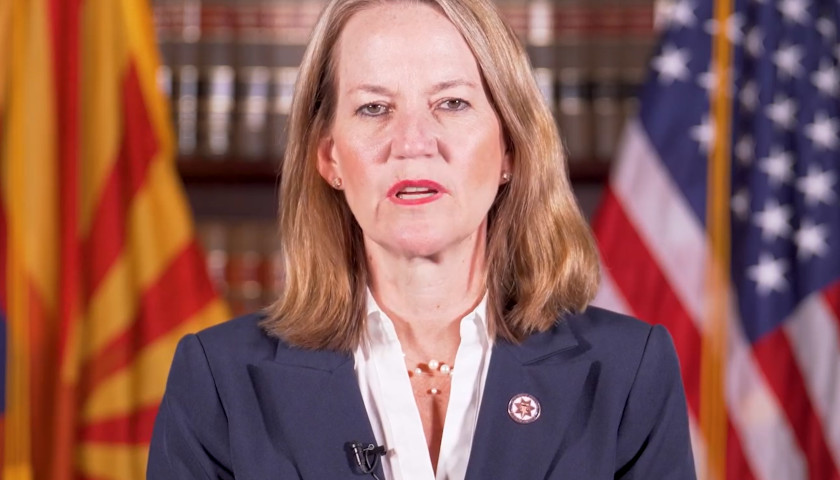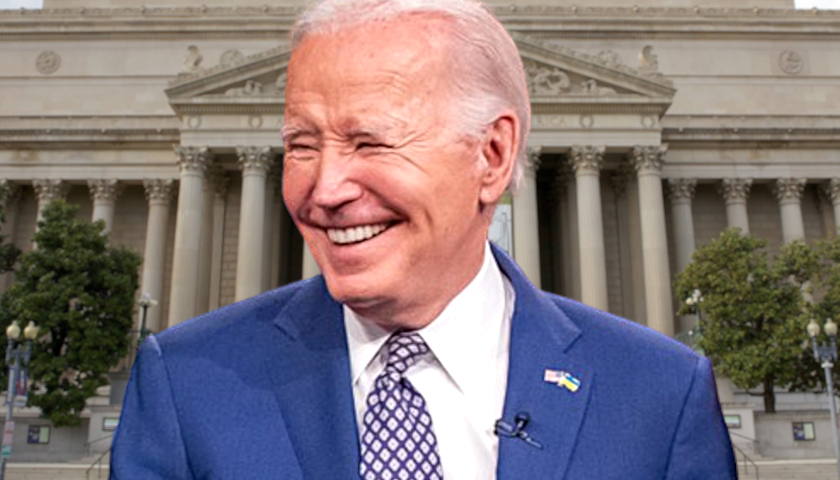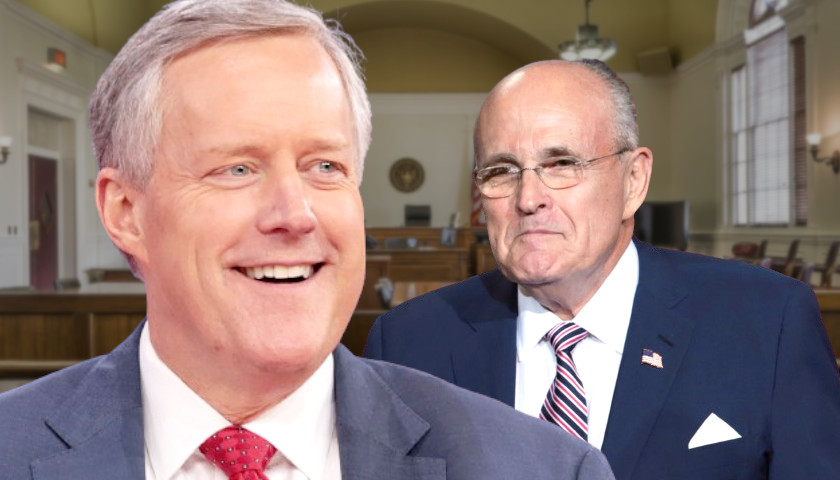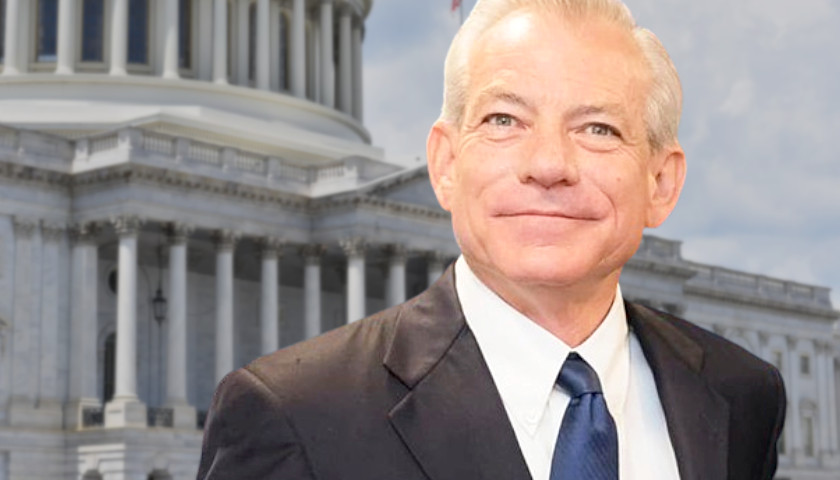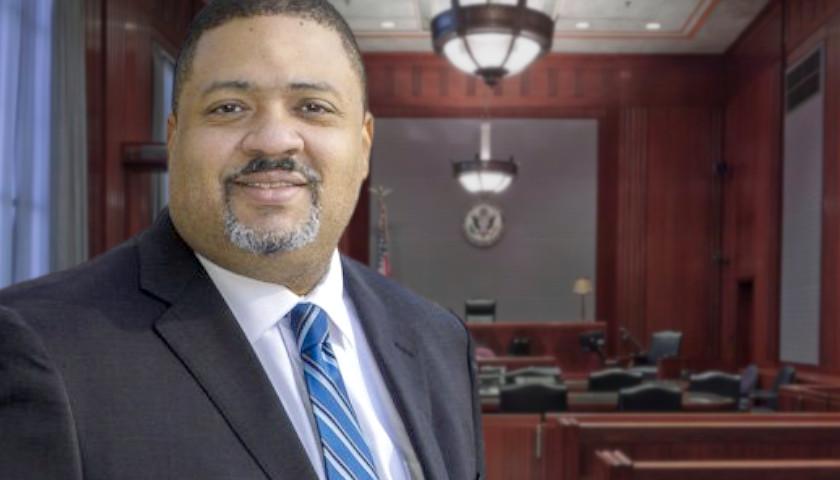Attorney General Kris Mayes persuaded a grand jury to indict the 11 Arizonans who agreed to serve as a slate of alternate electors for Donald Trump had he won the 2020 election, along with others involved in the effort to resolve election illegalities in that election. They are charged with conspiracy, fraud and forgery.
According to multiple media sources, while only the 11 alternate electors are named, the other indicted co-conspirators are considered likely to be Trump’s former attorneys Rudy Giuliani, John Eastman, Christina Bobb, and Jenna Ellis, his former chief of staff Mark Meadows, campaign advisor Boris Epshteyn and former campaign aide Mike Roman. Their names are redacted since they have not been served yet. Trump is reportedly the first unindicted co-conspirator.
Charles Burnham, Eastman’s attorney, told The Arizona Sun Times, “The phenomenon of partisan lawfare grows more troubling by the day. Professor Eastman is innocent of criminal conduct in Arizona or any other place and will fight these charges as he has all the other unjust accusations leveled against him.” The Sun Times fully covered the disbarment trial of Eastman, who is considered one of the leading constitutional legal scholars on the right and served as Trump’s attorney during the 2020 election challenges.
Senator Jake Hoffman (R-Queen Creek), one of the 11 indicted alternate electors, provided a statement to The Sun Times. “Before an investigation had even been conducted and with no evidence, Kris Mayes declared that she believed electors such as myself were guilty of a crime, that it was her job to get Biden re-elected, and that she would control the timing of the indictment,” he said. “Now, unsurprisingly, we see that she has weaponized the once respected Attorney General’s office to deliver an indictment of her Republican political opponents years after the events at issue, long after other Democrat prosecutors made their decisions, and right before Arizona’s primary elections. Let me be unequivocal, I am innocent of any crime, I will vigorously defend myself, and I look forward to the day when I am vindicated of this naked political persecution by the judicial process.”
Let me be unequivocal, I am innocent of any crime, I will vigorously defend myself, and I look forward to the day when I am vindicated of this disgusting political persecution by the judicial process.
Kris Mayes & the Democrats' naked corruption and weaponization of government… pic.twitter.com/PRWrqhtkyO
— Jake Hoffman (@JakeHoffmanAZ) April 25, 2024
California disciplinary court judge Yvette Roland, who funneled donations to a Democratic SuperPAC that fights against election integrity while serving on the bench yet did not recuse herself, said she disbarred Eastman primarily for advising Trump of various options for dealing with the election illegalities. Those included suggesting that Vice President Mike Pence could delay accepting certification of the slates of electors from states suspected of election fraud for 10 days while their state legislatures considered what to do. The State Bar of California’s attorneys argued that the vice president does not have substantive authority to accept or reject electoral slates, but must automatically accept them as merely a ministerial function.
During Eastman’s disbarment trial, nationally renowned Berkeley constitutional law professor John Yoo testified extensively about how the vice president historically had substantive authority in this area. He said he’d only encountered one other legal expert who disagreed, and went over historical examples where the vice president had exercised that power.
In 1960, there were three competing electoral slates from Hawaii. The first one came from the Republican Party, since it first appeared that Republican Richard Nixon, who was currently serving as vice president, received more votes than Democrat John F. Kennedy. Due to how close the race was, a recount was conducted, and the Democrats provided a second slate of electors, which was not certified by the state. Election fraud was suspected. Finally, after the recount was done, flipping the race to the Democrats, a third electoral slate from Democrats was certified by the state and accepted by Nixon. Nixon, according to legal experts including Eastman, could have rejected that slate, allowing himself to win the presidency, but chose not to.
Similarly, the competing set of electors in Arizona was not officially certified by government officials. None of the electors in Hawaii’s uncertified competing set of electors were prosecuted.
In 1876, the presidential race was extremely close between Republican Rutherford Hayes and Democrat Samuel Tilden. The situation was especially tense in southern states, due to Democrats threatening violence in order to keep blacks from voting. In Florida, Republican electors in Florida voted for Hayes, backed by certification from the state’s canvassing board that Hayes had won the state. Some people believed that Hayes really hadn’t won. At the same time, Democratic electors voted for Tilden, backed by the state’s attorney general, a Democrat, who certified the results. But after the state legislature and courts got involved, that certification was overturned.
In South Carolina, Democrats claimed that Tilden won, arguing that the state lacked a voter registration law, even though the state’s constitution required one. They submitted their slate supporting him to Congress. They admitted that their submission was not “signed by the governor” and “the seal of the State as affixed thereto, as required by law, is not attached.” There were also dueling slates from Louisiana, which involved forgery, but no one was prosecuted.
Democrats also submitted an alternative slate from Vermont supporting Tilden. According to Just Security, “there was never any pretense that … [the] purported package of electoral votes from Vermont had any official recognition from the state’s government.” So the envelope was not even opened by the vice president.
The indictments were expected, as Mayes had issued previous statements saying she was investigating the alternate slate of electors. Mayes is also prosecuting two Cochise County Supervisors for delaying the canvassing of the 2022 election due to concerns about illegal election activity.
In December, the Maricopa County Republican Committee unanimously passed a resolution on calling on the Arizona House of Representatives to impeach Democratic Attorney General Kris Mayes over her prosecution lawfare and hostility to election integrity.
Charges against alternate slates of electors have been filed in three other battleground states; Georgia, Michigan, and Nevada. There is an ongoing investigation in Wisconsin.
The alternate electors in Arizona are:
- Kelli Ward
- Michael Ward
- Nancy Cottle
- Loraine B. Pellegrino
- Tyler Bowyer
- Jake Hoffman
- Anthony T. Kern
- James Lamon
- Robert Montgomery
- Samuel I. Moorhead
- Greg Safsten
Read the indictment:
– – –
Rachel Alexander is a reporter at The Arizona Sun Times and The Star News Network. Follow Rachel on Twitter / X. Email tips to [email protected].
Image “AG Kris Mayes” by AG Kris Mayes.

